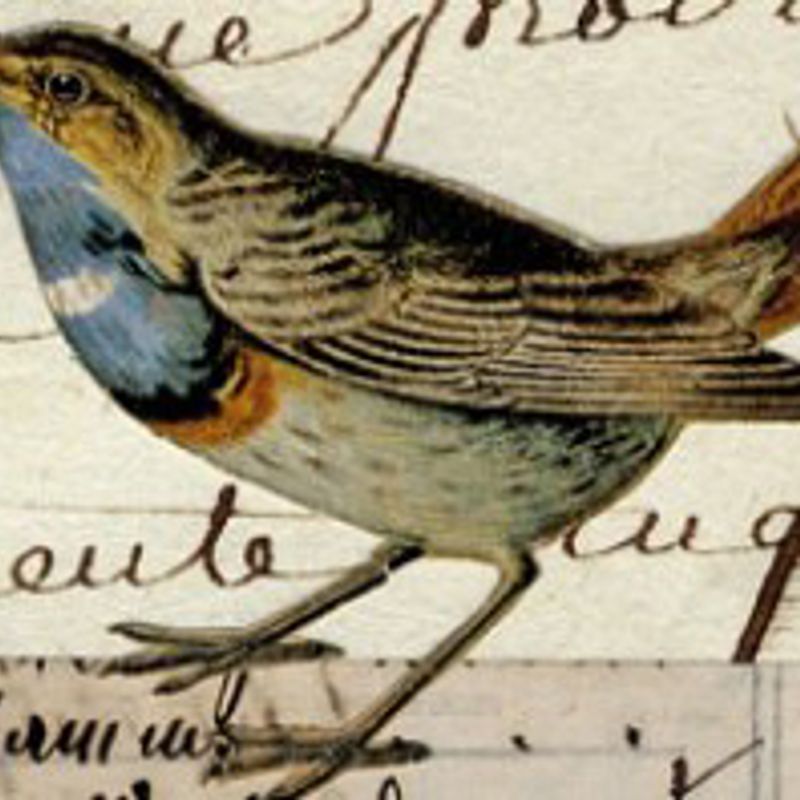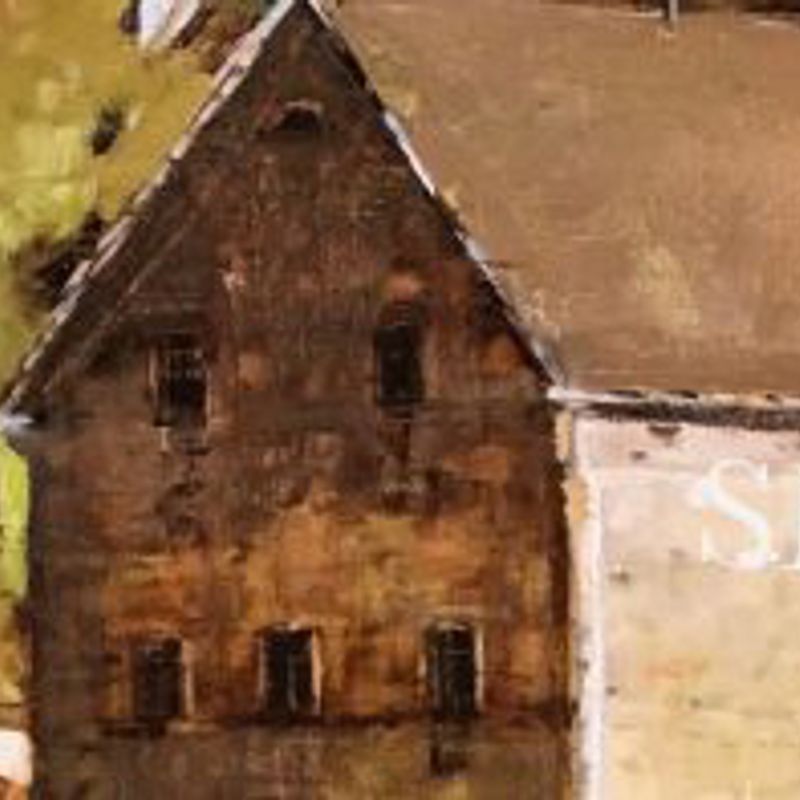Angles of Ascent: The Norton Anthology of African American Poetry
by Diann BlakelyAngles of Ascent: The Norton Anthology of Contemporary African American Poetry, ed. Charles Henry Rowell. W. W. Norton, $24.95.
Without even glancing at the ample prefatory material Rowell provides, most readers can discern his sympathies from the title: while another editor might have chosen a phrase from the reader-friendly Langston Hughes—“Life for me ain’t been no crystal stair”?—instead Rowell goes for the lesser-known Robert Hayden, who studied his craft under Auden and published Angle of Ascent: New and Selected Poems in 1975. To underscore his leanings, Rowell uses as an epigraph lines from “For a Young Artist”:
He strains, an awk-
ward patsy, sweating strains
leaping falling. Then—
silken rustling in the air,
the angle of ascent
achieved.
The poem is included with others—“Elegies for Paradise Valley” and “A Letter from Phillis Wheatley” by Hayden, one of the three “modernist” forerunners Rowell includes, along with Gwendolyn Brooks and Melvin B. Tolson. Why the deletion of Hughes, which has already made the book controversial? Is it, as Michael S. Harper puts it in “Don’t Explain: A Ballad Played by Dexter Gordon,” “Langston’s cues had a feel for lineal substitution but no feel for incremental leaping”?
Rowell organizes his material in chronological fashion, following Part 1’s “Precursors: The Modernists, 1940-1960” with two subsequent sections. “The 1960s and Beyond” begins with the Black Arts Movement, whose eponymous poem by Amiri Baraka remains its most famous. Or notorious, when we recall phrases about slimy-bellied “owner-jews” and “girdlemamma mulatto bitches.”
Writing as LeRoi Jones, the earlier Baraka produced Blues People, an invaluable means of cultural understanding; however distasteful we may find “Black Art,” he, with poets such as Sonia Sanchez and Nikki Giovanni, made writing about subjects other than race, and in tones other than that of separatist anger, possible.
Yet perhaps the best refutation of Baraka comes from a poet born a year earlier, Gerald Barrax, who opens Angles of Ascent’s following section, “The 1960s and Beyond: Outside the Black Arts Movement.” His statement of aesthetic principles prefaces the two poems included—these brief essays, most unpublished until now, are among Angle of Ascent’s most compelling features—and Barrax states that “passion alone is not enough to turn an angry, passionate young man into a poet, especially if the only passions he has are anger and hate.” Not that Barrax can he be accused of shying away from ugly emotions in “Eagle. Tiger. Whale.,” about violence against African American women, and “King: April 4, 1968.”
A reviewer could expend her entire word count with names and fragments of lines in Angles of Ascent, but Lorenzo Thomas’s “Onion Bucket”—separated from Barrax by the much beloved Lucille Clifton—begins with a line that resounds through the volume’s remainder: “All silence says music will follow.” For it’s “music” that does indeed “follow” in Part 2’s “Heirs: First Wave, Post-1960s”: Wanda Coleman, the self-described “Los Angeles Blueswoman”; Cornelius Eady; Gayl Jones; Harryette Mullen, whom I’ve described elsewhere as the love-child of Gertrude Stein and W. C. Handy, given Muse & Drudge and her shared birthplace with the latter—Florence, Alabama; Nathaniel Mackey; Marilyn Nelson, whose germinal essay “Owning the Masters” remains a must-read; and in terms of influence, perhaps most importantly, Rita Dove and Yusef Komunyakaa.
In fact, Dove, our country’s first African American Poet Laureate, and Komunyakaa may be seen as the parents of two entire new generations of black poets—“Second Wave, Post-1960s” and “Third Wave, Post-1960s”— whose number comprises nearly half the book’s pages, featuring nearly every well-known poet to those conversant with the genre in any hue. All three “waves” illustrate as well the need for a new reckoning with African American poetry in terms of its past interwined with “the music of what happens” now.
Rowell organizes each section alphabetically, beginning with Elizabeth Alexander, our most recent inaugural poet, and places Tracy K. Smith, this year’s Pulitzer Prize winner, toward the end. As founding editor of Callaloo in 1976, he has not only launched the careers of many holding major awards—and in the cases of Dove and Natasha Trethewey, appointments as Poets Laureate—but also provided a home for brilliantly gifted writers who aren’t household names. (At least not yet, sometimes despite various accolades.) I’ve selected a pair represented by as-yet unpublished books: Rockefeller/Bellagio Foundation fellow Kendra Hamilton, and Madgett winner Crystal Williams.
For Hamilton and others, a sense of self-fracture remains, as can be seen in “Belle’s Promenade: Nassau Street, Princeton.” “Belle” is the primary character of a manuscript-in-progress called Mirrours of the World, and the work consists of a character’s microcosmic reverie and trap, which will soon tighten its net around her “mulatto” identity. Having landed a job at Princeton’s library, she will meet J.P. Morgan, who allowed Greene to continue her mother’s “deceptions”—i.e. “passing”—while she helped him develop what passed for taste:
Here, amid all my deceptions
—fatherless child
from sun-washed Cape Verde
mama’s genteel pretensions—
is also everything that’s
true in my life.
The American books I pop
like chocolate drops on the tongue.
The fine bindings, incunabula,
for which I hunger as a child awaiting
Easter supper.
And no mere riches of our pretty
world can save me.
What could? The confrontational anger of the Black Arts Movement may not have been the answer, but it provided the ground for self-confrontation, like Greene’s and many of the youngest poets here, including Williams, Rowell’s penultimate poet. No “crystal stair” provides an escape from the problem she examines on Hayden’s hometown freeway, named for “Edsel Ford,” from a new manuscript, Detroit as Barn:
People close to you are hungry & you have ignored it. People close to you have lost their jobs.
Today somebody’s mother has died. Today somebody’s child has
been murdered. Today some body lost sight.
& your Lumina runs.
Your Lumina runs well. Luminosity.
woman. No one is coming to save you. There is nothing from
which to be saved.
The implicit dictum here is that we must save each other: no color is mentioned, only gender. If even that division seems false and inconsequential, see Jericho Brown’s “Prayer of the Backhanded,” where what seems to be a recurring word ends a prayer for his homophobic—yet a new dimension of black identity being explored—father.
While there may, in fact, be “nothing from which to be saved” except our own solipsism and anger, Angles of Ascent’s other essential message explains why such anthologies remain essential themselves: how can white America see and/or read itself except through what Toni Morrison calls “what moves at the margins,” especially since what moves there was brought to these shores by force and the subject of so much historical cruelty?
Rowell’s accomplishment, though monumental, is not without imperfections: the question of Hughes will linger of course, and isn’t to be decided by me; but far more recently, where are Erica Dawson, Willie James King, Rowan Ricardo Phillips, Mona Lisa Saloy, Tim Seibles and Claude Wilkinson? My knowledge of each poet’s work remains, however, relatively new, and their own ascent may not have yet made them visible on Rowell’s radar—or they may have been among the problematic aspects of assembling an anthology he discusses in the preface. That negates not in the slightest the anthology’s importance. Angles of Ascent is an enormous and solid bequest to readers of American poetry: let us give thanks.



